The American Psychological Association notes that one-third of Americans are living with extreme stress. While stress from work deadlines, family demands, and personal pressure can often take a toll on our mental wellbeing. Also, heavy amounts of stress can also take a physical toll on our bodies. If you have been experiencing chronic pain from stress, then it is time to schedule a visit with the experts at CRPM.
The Correlation Between Stress and Chronic Pain
For years researchers have been intrigued by the correlation between stress and chronic pain. Jennifer Schneider, MD, Ph.D., the author of Living With Chronic Pain and a specialist on chronic pain, shares her view. She states that lots of studies support the conclusion that what happens in the brain can increase pain (ex: stress, anxiety, depression). Some experts believe this is because of the tension that occurs in the muscles when someone is stressed. Others believe that the correlation could go even deeper and is tied to the chemicals in the brain. It is also a possibility that it could be a mixture of the two. While there isn’t a black and white answer right now, it is important to understand that both influence one another significantly. It is vital to prioritize stress relief practices to help.
Stress Management
Unfortunately, chronic pain causes more chronic pain. This means that once the cycle starts, it is difficult to stop. When your muscles in your neck, shoulders, back, and jaw are consistently clenched from extreme stress, it results in chronic muscle tension. The best way to stop this cycle is to be proactive and implement stress management practices that are effective for you.
If you are new to stress management, the best place to start is at the beginning. Take note of the stressors in your life and begin implementing stress relief practices to use in those moments. While there may be some stressors that are out of your control, focus on the ones that you can first. From there, you can tackle some of the bigger ones. Below is a list of common stress relief activities to help get you started:
- Deep breathing exercises
- Meditating
- Exercising
- Writing a gratitude list or positive message
- Eating some dark chocolate
- Sleeping for a solid 8 hours at night
It may take some time to find which stress management works best for you. But, it is worth it to help reduce any chronic pain that you are experiencing.
Treatment Options
When chronic pain has affected your quality of life, and the initial solutions do not work, then it is time to contact the experts at CRPM. At CRPM, their team can help with everything from back pain and migraines to carpal tunnel syndrome and rheumatoid arthritis. Each of their treatments is tailored to your specific pain management needs so that you get the relief you deserve. Some of the treatment options they provide include spinal cord stimulation, epidural injections, joint injections, therapeutic nerve blocks, and trigger point injections. To get more information on the treatment options they have available, contact their team today.
The correlation between stress and chronic pain is undeniable. If you have just recently started experiencing chronic pain from stress, it is essential to be proactive to stop it from becoming worse. If you have been experiencing chronic pain for years and are ready to get your life back, then it is time to implement some effective treatments. Regardless of where you lie, the experts at CRPM can help you. To get more information on their treatment options for chronic pain, contact their team today.


